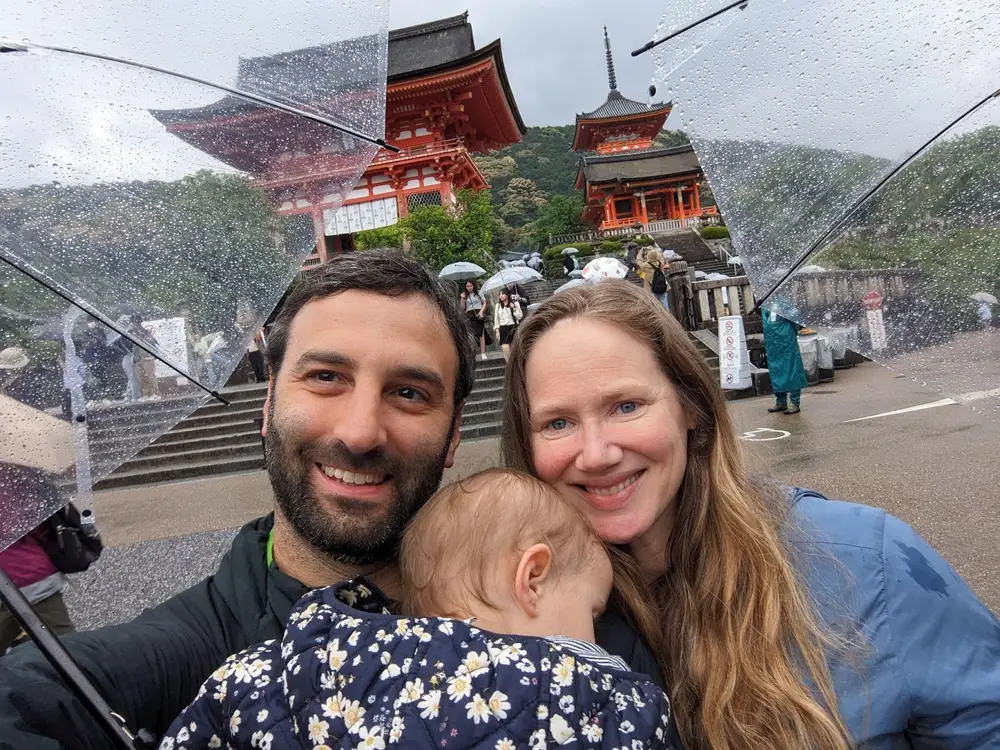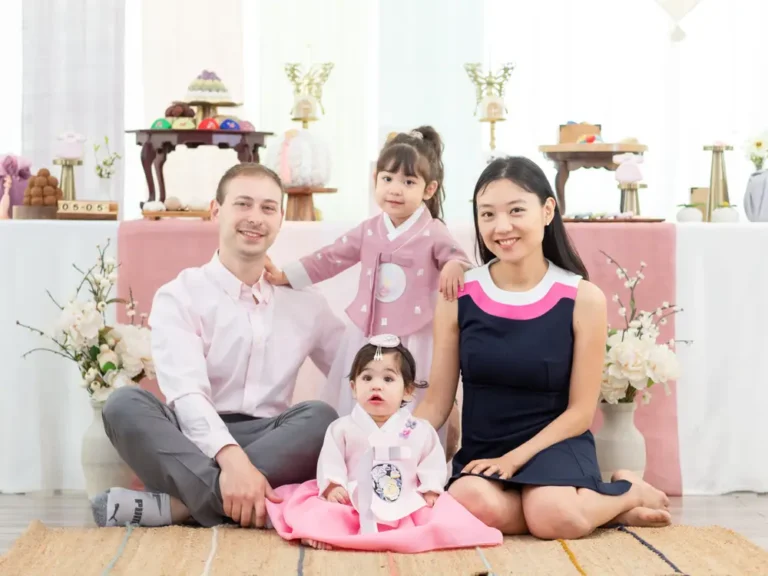I’m a female breadwinner who moved to Switzerland for my Google job. Our family dynamic is not easy in a conservative culture.

Annalisa Pawlosky is an AI research scientist at Google.
This as-told-to essay is based on a conversation with Annalisa Pawlosky, a 40-year-old AI research scientist at Google in Zurich. The following has been edited for length and clarity. Opinions are her own and not those of Google.
I did my undergrad in physics, my Ph.D. at MIT, and my postdoc at Stanford. While I was at Stanford, Google asked me to start the Google Accelerated Science biochemistry and molecular biology laboratory.
I started my own lab as a contractor while I finished my postdoc in 2016, and I started working for Google in the Mountain View headquarters the next year.
I was single for a while. I froze my eggs and was even thinking of having kids by myself if I hadn’t met anyone by the time I was 36.
I met my husband in 2019 when I was 35. He used to work in patent law for a big law firm, but a few years before I met him, he left to create a legal tech startup for patents.
Google scaled up my role
By 2020, my lab had over 35 people working in it. I had a big budget and worked long hours, but Google decided to change its strategy during the pandemic and close down my lab.
San Francisco became increasingly stressful during that summer. I wanted to go somewhere new and work on something different. Because Google has roles worldwide, we just had to ask ourselves where we wanted to go.
We considered London, Dublin, Paris, or Switzerland. My husband likes snowboarding, so we settled on Switzerland and I applied for a handful of roles there. After a few interviews, I got my current role.
We married in August 2020 and moved to Switzerland in the same month
We spent our first three months as a married couple living in the mountains. In October 2020, we fell pregnant, and we moved to Zurich when I was about seven months along.
Americans without visas weren’t allowed in the country then, so our family couldn’t come and support us. My maternity leave period was 20 weeks, and I returned to work.
My husband didn’t take a salary during our first year in Switzerland. I’ve probably made five to seven times his salary during our time together, but he’s building future equity, and I’m very proud of his work.
We had our second child 10 months ago
For my second child, I received 24 weeks of maternity leave. In Switzerland, putting your child in care when they’re under three months old isn’t an option, so mothers get a little extra leave.
Returning to work was bittersweet for me. As an introvert, having some time to recover from the mental stimulus of childrearing is good, but missing my baby is a pain like no other.
My role involves a lot of travel, and often, the whole family will come with me
In the year or so after my first child was born, I went on 39 work trips throughout Europe, Asia, and the US. The baby came with me for most of them, so my husband came, too.
Having them there was helpful but involved more logistics and could make the trips more stressful. They still come often because I’m still breastfeeding my second daughter.
My husband’s hours are flexible, so he can work evenings, but when traveling, I work long hours and then have to look after the two girls so he can get some work done.
The hardest part of being the main breadwinner is the mental load
I do more of the childcare during the workweek, say 60/40. I do a lot more during vacation: 80/20 or even 90/10. My husband doesn’t ever really get a vacation. For a household, the execution may be 50/50, but I take on most of the planning, decision-making, and mental load.
So many things have to go through me and be my responsibility, such as my work reimbursement for health insurance. It’s a great benefit, but I must file the receipts and do all the administration.
I also manage the play dates and social calendar, make all the weekend plans and holidays, and manage our finances.
Family dynamics are more conservative in Switzerland
Children come home for lunch every day until high school. On Wednesdays, they stay home for the entire afternoon, and a parent is expected to be home.
There’s an expectation of one earner and one person at home, typically the mother. There’s also a cultural expectation that I take on a lot, especially regarding household and childcare duties.
There are fewer support services for working mothers in Switzerland than in the US. Since it’s assumed that one parent is at home, fewer meal programs, food delivery services, and childcare slots are available.
I have a very supportive husband, but the income disparity has caused its share of issues
Right now, his salary covers our childcare, and mine covers our cost of living, which is very expensive in Zurich.
If our genders were switched, someone would ask why I don’t stay home instead. Interestingly, no one seems to ask that about men.
I still get asked almost weekly if we moved for my husband’s job. I’ve also had people ask if my husband makes more money than I do. It’s shocking.
Our main goal is to create opportunities for our kids
I want my daughters to see female entrepreneurs and leaders pursue what they want to do, not limit the scope of options based on tradition.
Parts of me want to return to the US, but the current climate worries me. We love Switzerland, and life here is very safe and stable. We’d also love to experience other cultures like in Asia or Africa.
I think that there’s a perception of working mothers that we are distracted, not interested in promotions, or that we can’t be the breadwinner. In my case, and I’m sure in others, these perceptions aren’t true.
Don’t count us out. We are stronger, more efficient, and more creative than we are given credit for.






